Profile
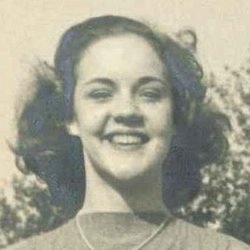
Carolyn Wood Sherif
Birth:
1922
Death:
1982
Training Location(s):
PhD, University of Texas (1961)
MA, University of Iowa (1944)
BS, Purdue University (1943)
Primary Affiliation(s):
Smith College (1979)
Cornell University (1969-1970)
Pennsylvania State University (1965-1966, 1970-1982)
University of Oklahoma (1963-1965)
Other Media:
Archival Collection
Career Focus:
Social judgment; the self-system; intergroup conflict and cooperation; power relations; gender bias; gender identity.
Biography
Born June 28, 1922, in Loogootee, Indiana, Carolyn Wood was the youngest of three children. Her parents encouraged all three of their children to obtain a high level of education, a lesson that Wood took to heart. Due to her father's affiliation with Purdue University as a supervisor for teacher training, Wood Sherif was able to afford tuition at the school, and it was there that she studied science in an historical and humanistic context. Wood Sherif graduated from Purdue with a BS with Highest Distinction.
Immediately following her years at Purdue, Wood attended the University of Iowa, where she quickly completed her master's degree. In only one year, equipped with her MA, she moved to Princeton, New Jersey to begin work for Audience Research Inc. Although her new job allowed her to gain research experience, she found the position to be too commercial and out of touch with the social issues in which she was truly interested. Finally, following an incident of sexual harassment, she quit her job.
Unsure of where to go next, Wood wrote a letter to Hadley Cantril (a social psychologist at Princeton University) to seek advice about graduate school. Though she had never met Cantril, he promptly offered her a position doing research with Muzafer Sherif. Wood was thrilled by this opportunity, as she had read Sherif's work, and was inspired by his dedication to social issues. Not able to attend Princeton as a graduate student because she was a woman, Wood took courses at Columbia University while continuing her research on attitude formation and intergroup relations with Sherif. While working together, Muzafer and Carolyn developed a romantic relationship, which led to their marriage in 1945.
In the years that followed, Wood Sherif participated in many collaborative research efforts with her husband, but due to his prominence in the field of social psychology, her efforts were often underappreciated in the academic community. Despite a lack of recognition for her work, Wood Sherif produced and co-authored several important studies during this phase of her life. Most notably, Carolyn and Muzafer were involved in the classic Robbers Cave Experiment in 1954, which examined the intergroup conflict and cooperation of adolescent boys at a summer camp.
Not only was this a productive time in Wood Sherif's career, but it was also a busy time in her personal life. The Sherifs had their first daughter in 1947, followed by two more daughters in 1950 and 1955.
In 1958, at her husband's urging, Wood Sherif began work on her PhD at the University of Texas under the supervision of Wayne Holtzman. She was awarded her PhD in 1961, and during her time at the University of Texas, she headed a project funded by the United States Office of Vocational Rehabilitation. This work concentrated on self-concept and the goals of youth.
Following the completion of her PhD in Texas, Wood Sherif began work as a research associate at the Institute of Group Relations in Oklahoma. In the next few years, she produced numerous papers, books and invited book chapters regarding youth, reference groups, attitudes and social judgment. After spending two years in Oklahoma, the Sherifs were both offered tenure-track positions at Pennsylvania State University. Wood Sherif also spent time as a visiting professor at both Cornell and Smith College.
By the 1960s, Wood Sherif began shifting her research focus toward the psychology of gender. She wrote several papers regarding gender bias in psychological research, as well as gender roles, identity and reproduction. Wood Sherif attributed her success as a researcher to the women's movement of the '60s and '70s. In 1972, she participated in the first graduate seminar on the psychology of women at Penn State. This had a profound effect on her, and led to her commitment and involvement in feminist psychology. She was a founding member of Division 35 of the American Psychological Association (APA), which is now known as the Society for the Psychology of Women. She served as the Division's 7th president in 1979-1980 and was an early consulting editor for the Division's journal, Psychology of Women Quarterly, which was launched in 1976.
Carolyn Wood Sherif received many awards and distinctions for her work. She received the Association for Women in Psychology's Distinguished Publication award in 1981, as well as an award for her contribution to education in psychology in 1982. Division 35 has dedicated its most prestigious award in her honour, which acknowledges psychologists for their teaching and mentorship roles, as well as research scholarship and professional leadership in the field of psychology of women. Shortly before her death in 1982, Wood Sherif was appointed editor of the Journal of Social Issues. She was unable to take on this honour, however, due to her untimely death in July of 1982. Carolyn Wood Sherif died of cancer at the age of 60.
by Meghan George (2011)
To cite this article, see Credits
Selected Works
By Carolyn Wood Sherif
Sherif, C.W. (1972). Females and the competitive process. In D. Harris (Ed.), Women and Sport: A national research conference (pp. 115-139). University Park: Pennsylvania State University.
Sherif, C. W. (1976). Orientation in social psychology. New York: Harper & Row.
Sherif, C. W. (1979). Bias in psychology. In J. A. Sherman and E. T. Beck (Eds), The prism of sex: Essays in the sociology of knowledge (pp. 93-133). Madison: University of Wisconsin Press.
Sherif, C. W. (1982). Needed concepts in the study of gender identity. Psychology of Women Quarterly, 6(4), 375-398.
Sherif, C. W. (1998). Bias in psychology. Feminism & Psychology, 8, 58-75. (Reprinted from The Prism of Sex: Essays in the sociology of knowledge, pp. 93-133, by J. A. Sherman & E. T. Beck, Eds., 1979, Madison, WI: University of Wisconsin Press)
Sherif, M., Harvey, O. J., White, B. J., Hood, W. R., & Sherif, C. W. (1961). Inter group conflict and cooperation: The Robbers Cave experiment. Norman: University of Oklahoma Book Exchange.
Sherif, M. & Sherif, C. (1970). Black unrest as a social movement toward an emerging self identity. Journal of Social and Behavioral Sciences, 15(3), 41-52.
Young, C. J., MacKenzie, D. L. & Sherif, C. W. (1980). In search of the token woman in academia. Psychology of Women Quarterly, 4(4), 508-525.
About Carolyn Wood Sherif
Mednick, M. T. & Russo, N. F. (1983). Obituary of Carolyn Wood Sherif: Brilliant scholar, gifted teacher, cherished friend 1922-1982. Psychology of Women Quarterly, 8(1), 3-8.
Shaffer, L. S. & Shields, S. A. (1984). Carolyn Wood Sherif (1922-1982). American Psychologist, 39(2), 176-178.
Sherif, C. W. (1983). Carolyn Wood Sherif. In. A. N. O'Connell & N. Felipe Russo (Eds.), Models of achievement: Reflections of eminent women in psychology (pp. 279-293). New York: Columbia University Press.
Shields, S. A. (2004). Carolyn Wood Sherif. In S. Ware (Ed.), Notable American women: A biographical dictionary. Completing the twentieth century (pp. 587-589). Cambridge, MA: Harvard University Press.
Shields, S. A. & Signorella, M.L. (2014). Carolyn Wood Sherif (1922-1982): Feminist social psychology in the service of equality for all peoples. Psychology of Women Quarterly, 38, 443-446.
Vegega, M. E. & Signorella, M. L. (1990). Carolyn Wood Sherif (1922-1982). In A. N. O'Connell & N. F. Russo (Eds.), Women in Psychology: A Bio-Bibliographic Source Book (pp. 297-306). New York, NY: Greenwood Press.
Photo Gallery
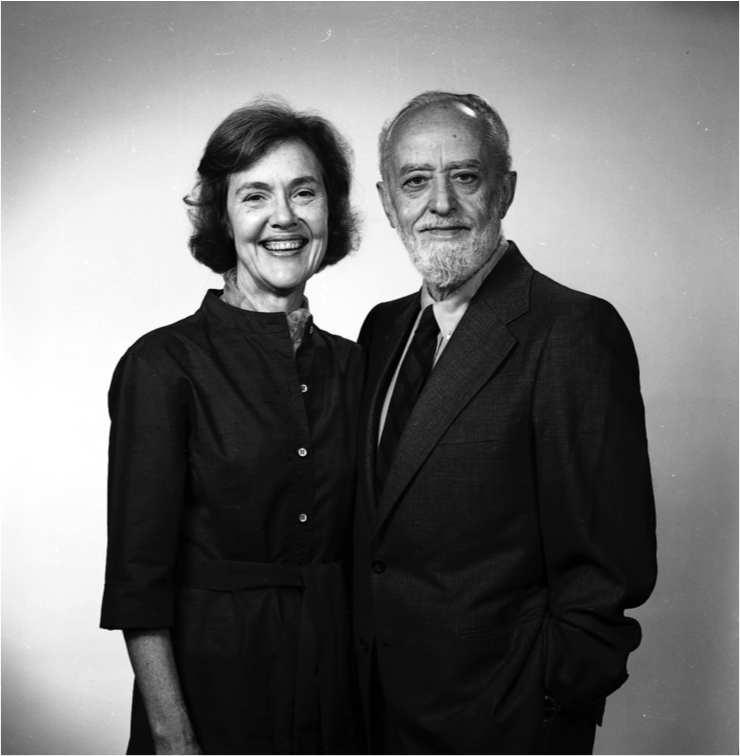
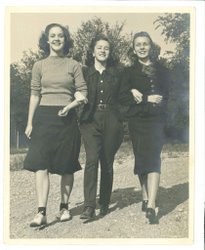
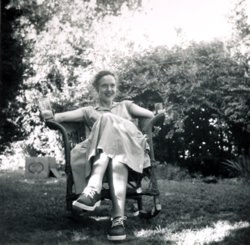
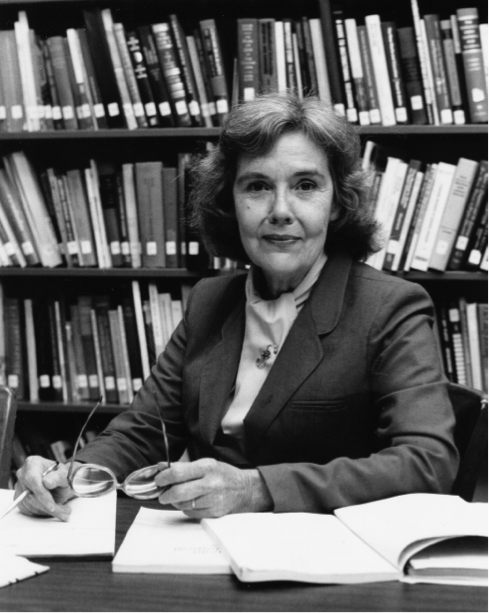
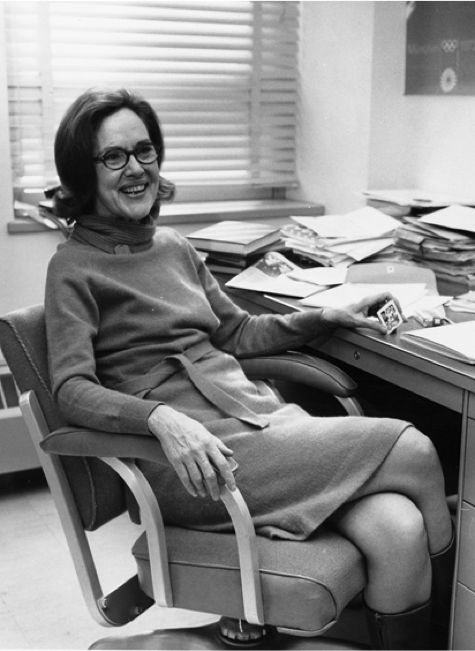
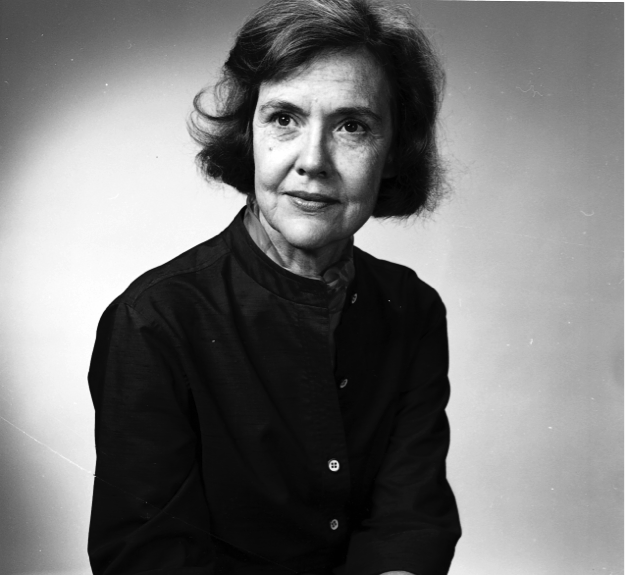

Carolyn Wood Sherif
Birth:
1922
Death:
1982
Training Location(s):
PhD, University of Texas (1961)
MA, University of Iowa (1944)
BS, Purdue University (1943)
Primary Affiliation(s):
Smith College (1979)
Cornell University (1969-1970)
Pennsylvania State University (1965-1966, 1970-1982)
University of Oklahoma (1963-1965)
Other Media:
Archival Collection
Career Focus:
Social judgment; the self-system; intergroup conflict and cooperation; power relations; gender bias; gender identity.
Biography
Born June 28, 1922, in Loogootee, Indiana, Carolyn Wood was the youngest of three children. Her parents encouraged all three of their children to obtain a high level of education, a lesson that Wood took to heart. Due to her father's affiliation with Purdue University as a supervisor for teacher training, Wood Sherif was able to afford tuition at the school, and it was there that she studied science in an historical and humanistic context. Wood Sherif graduated from Purdue with a BS with Highest Distinction.
Immediately following her years at Purdue, Wood attended the University of Iowa, where she quickly completed her master's degree. In only one year, equipped with her MA, she moved to Princeton, New Jersey to begin work for Audience Research Inc. Although her new job allowed her to gain research experience, she found the position to be too commercial and out of touch with the social issues in which she was truly interested. Finally, following an incident of sexual harassment, she quit her job.
Unsure of where to go next, Wood wrote a letter to Hadley Cantril (a social psychologist at Princeton University) to seek advice about graduate school. Though she had never met Cantril, he promptly offered her a position doing research with Muzafer Sherif. Wood was thrilled by this opportunity, as she had read Sherif's work, and was inspired by his dedication to social issues. Not able to attend Princeton as a graduate student because she was a woman, Wood took courses at Columbia University while continuing her research on attitude formation and intergroup relations with Sherif. While working together, Muzafer and Carolyn developed a romantic relationship, which led to their marriage in 1945.
In the years that followed, Wood Sherif participated in many collaborative research efforts with her husband, but due to his prominence in the field of social psychology, her efforts were often underappreciated in the academic community. Despite a lack of recognition for her work, Wood Sherif produced and co-authored several important studies during this phase of her life. Most notably, Carolyn and Muzafer were involved in the classic Robbers Cave Experiment in 1954, which examined the intergroup conflict and cooperation of adolescent boys at a summer camp.
Not only was this a productive time in Wood Sherif's career, but it was also a busy time in her personal life. The Sherifs had their first daughter in 1947, followed by two more daughters in 1950 and 1955.
In 1958, at her husband's urging, Wood Sherif began work on her PhD at the University of Texas under the supervision of Wayne Holtzman. She was awarded her PhD in 1961, and during her time at the University of Texas, she headed a project funded by the United States Office of Vocational Rehabilitation. This work concentrated on self-concept and the goals of youth.
Following the completion of her PhD in Texas, Wood Sherif began work as a research associate at the Institute of Group Relations in Oklahoma. In the next few years, she produced numerous papers, books and invited book chapters regarding youth, reference groups, attitudes and social judgment. After spending two years in Oklahoma, the Sherifs were both offered tenure-track positions at Pennsylvania State University. Wood Sherif also spent time as a visiting professor at both Cornell and Smith College.
By the 1960s, Wood Sherif began shifting her research focus toward the psychology of gender. She wrote several papers regarding gender bias in psychological research, as well as gender roles, identity and reproduction. Wood Sherif attributed her success as a researcher to the women's movement of the '60s and '70s. In 1972, she participated in the first graduate seminar on the psychology of women at Penn State. This had a profound effect on her, and led to her commitment and involvement in feminist psychology. She was a founding member of Division 35 of the American Psychological Association (APA), which is now known as the Society for the Psychology of Women. She served as the Division's 7th president in 1979-1980 and was an early consulting editor for the Division's journal, Psychology of Women Quarterly, which was launched in 1976.
Carolyn Wood Sherif received many awards and distinctions for her work. She received the Association for Women in Psychology's Distinguished Publication award in 1981, as well as an award for her contribution to education in psychology in 1982. Division 35 has dedicated its most prestigious award in her honour, which acknowledges psychologists for their teaching and mentorship roles, as well as research scholarship and professional leadership in the field of psychology of women. Shortly before her death in 1982, Wood Sherif was appointed editor of the Journal of Social Issues. She was unable to take on this honour, however, due to her untimely death in July of 1982. Carolyn Wood Sherif died of cancer at the age of 60.
by Meghan George (2011)
To cite this article, see Credits
Selected Works
By Carolyn Wood Sherif
Sherif, C.W. (1972). Females and the competitive process. In D. Harris (Ed.), Women and Sport: A national research conference (pp. 115-139). University Park: Pennsylvania State University.
Sherif, C. W. (1976). Orientation in social psychology. New York: Harper & Row.
Sherif, C. W. (1979). Bias in psychology. In J. A. Sherman and E. T. Beck (Eds), The prism of sex: Essays in the sociology of knowledge (pp. 93-133). Madison: University of Wisconsin Press.
Sherif, C. W. (1982). Needed concepts in the study of gender identity. Psychology of Women Quarterly, 6(4), 375-398.
Sherif, C. W. (1998). Bias in psychology. Feminism & Psychology, 8, 58-75. (Reprinted from The Prism of Sex: Essays in the sociology of knowledge, pp. 93-133, by J. A. Sherman & E. T. Beck, Eds., 1979, Madison, WI: University of Wisconsin Press)
Sherif, M., Harvey, O. J., White, B. J., Hood, W. R., & Sherif, C. W. (1961). Inter group conflict and cooperation: The Robbers Cave experiment. Norman: University of Oklahoma Book Exchange.
Sherif, M. & Sherif, C. (1970). Black unrest as a social movement toward an emerging self identity. Journal of Social and Behavioral Sciences, 15(3), 41-52.
Young, C. J., MacKenzie, D. L. & Sherif, C. W. (1980). In search of the token woman in academia. Psychology of Women Quarterly, 4(4), 508-525.
About Carolyn Wood Sherif
Mednick, M. T. & Russo, N. F. (1983). Obituary of Carolyn Wood Sherif: Brilliant scholar, gifted teacher, cherished friend 1922-1982. Psychology of Women Quarterly, 8(1), 3-8.
Shaffer, L. S. & Shields, S. A. (1984). Carolyn Wood Sherif (1922-1982). American Psychologist, 39(2), 176-178.
Sherif, C. W. (1983). Carolyn Wood Sherif. In. A. N. O'Connell & N. Felipe Russo (Eds.), Models of achievement: Reflections of eminent women in psychology (pp. 279-293). New York: Columbia University Press.
Shields, S. A. (2004). Carolyn Wood Sherif. In S. Ware (Ed.), Notable American women: A biographical dictionary. Completing the twentieth century (pp. 587-589). Cambridge, MA: Harvard University Press.
Shields, S. A. & Signorella, M.L. (2014). Carolyn Wood Sherif (1922-1982): Feminist social psychology in the service of equality for all peoples. Psychology of Women Quarterly, 38, 443-446.
Vegega, M. E. & Signorella, M. L. (1990). Carolyn Wood Sherif (1922-1982). In A. N. O'Connell & N. F. Russo (Eds.), Women in Psychology: A Bio-Bibliographic Source Book (pp. 297-306). New York, NY: Greenwood Press.






